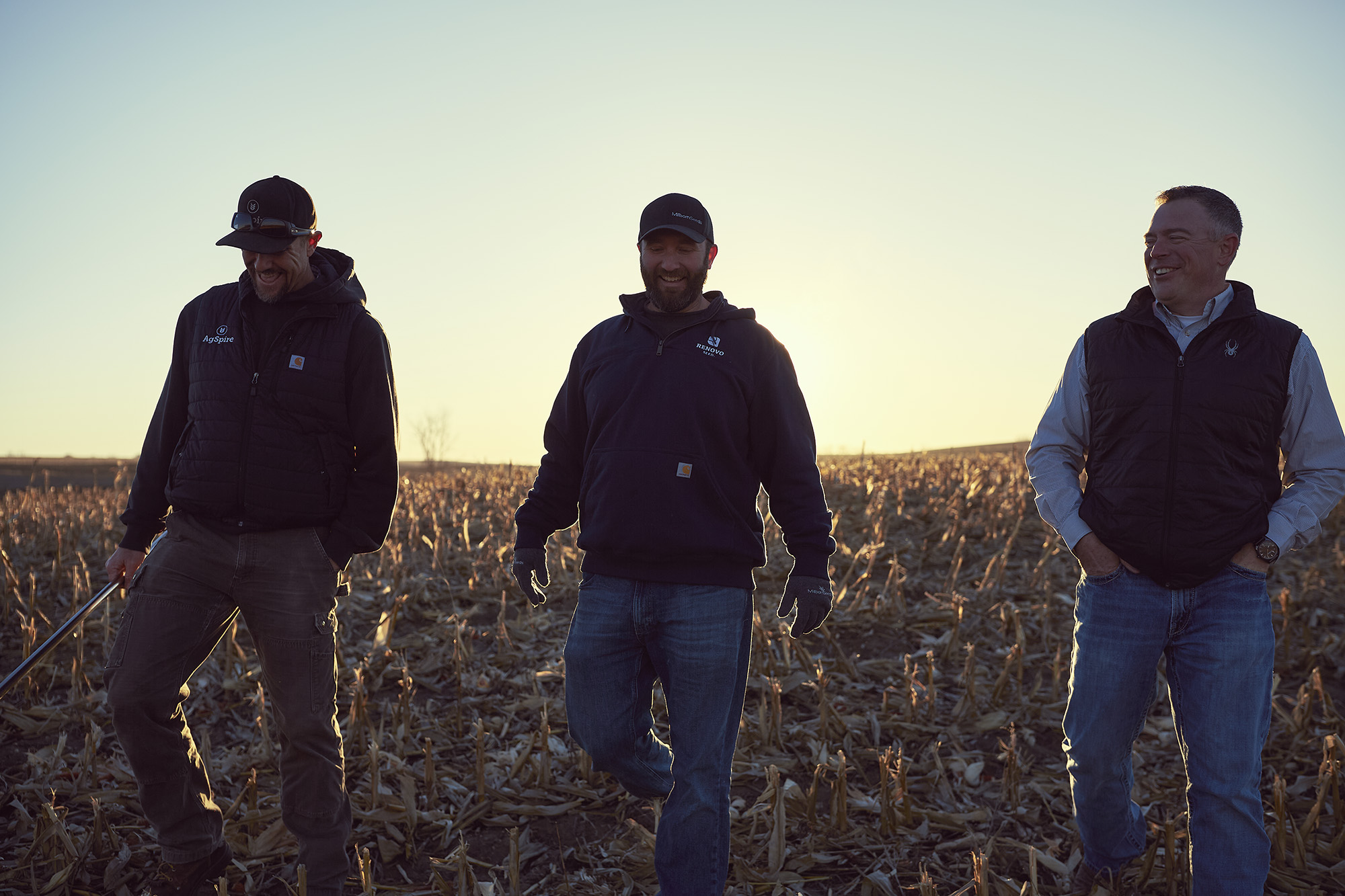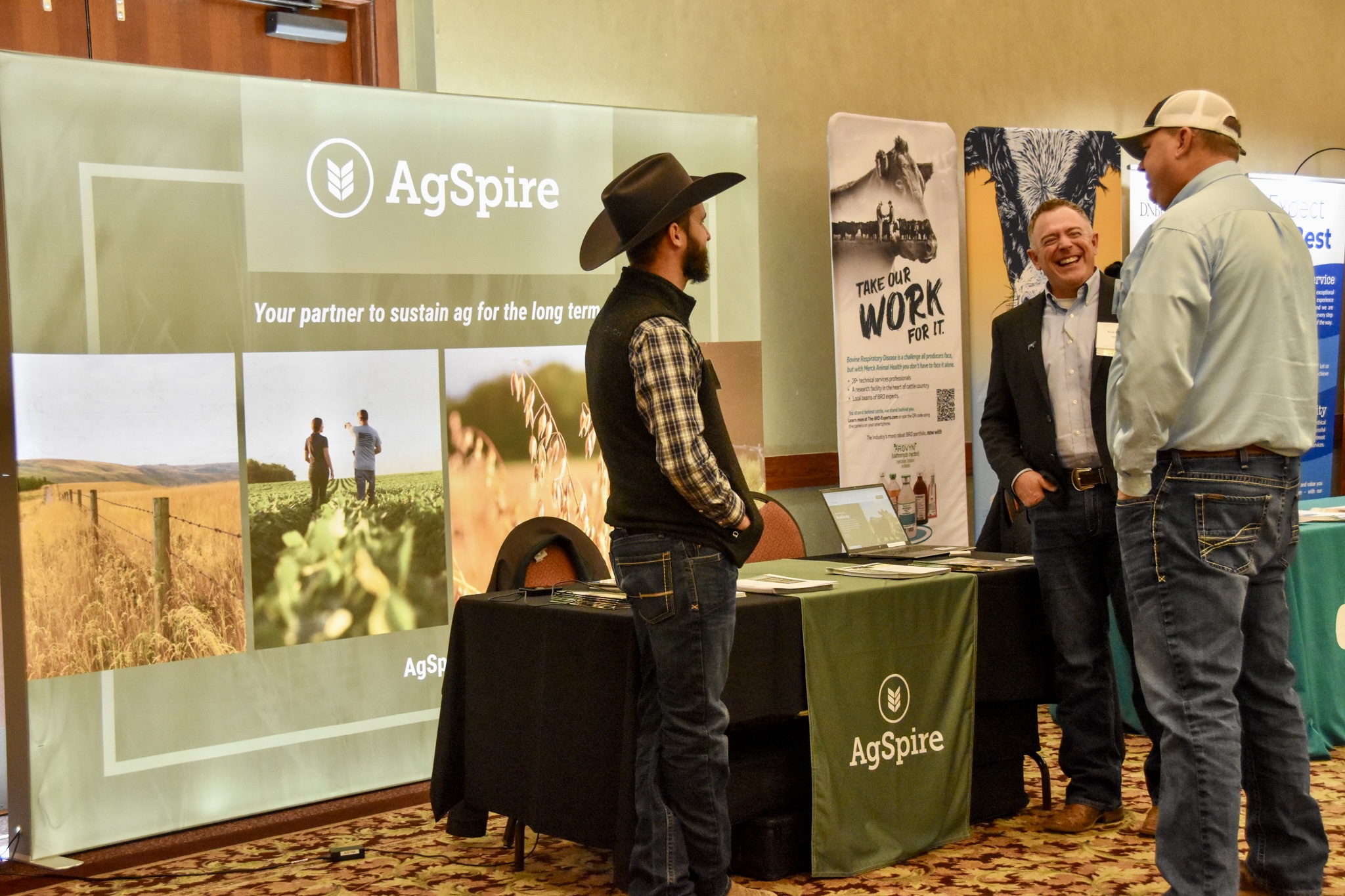
Earlier this year, AgSpire announced our latest initiative – The SustainAg Network. Through this network, we are connecting farmers and ranchers to innovative programs and new markets that align with principles of conservation, sustainability, and regenerative agriculture.
Read the announcement about The SustainAg Network Launch here >>>
Since that announcement, the AgSpire team has traveled around the country to meet with producers, leading recruitment for our program portfolio. This boots-on-the-ground approach has given us the opportunity to meet with hundreds of farmers and ranchers, learning first-hand about their goals, motivations, and barriers to sustainable practice adoption.
These efforts have revealed several key takeaways for program design and implementation:
> Producer interest and acceptance
Producers want to do what is good for the land, their animals, and their businesses – and recognize the value that positive environmental outcomes bring to their operation. There is widespread interest in sustainability programs, both for private-market programs as well as public conservation programs, like EQIP or CSP.
With a rapidly changing landscape though, many producers are seeking more clarity from these programs. Straightforward requirements, conscious data privacy policies, clear business and agronomic value, and simple incentive structures drive greater interest among farmers and ranchers.
> Personalized assistance
As we’ve traveled to different parts of the country, it’s evident that there isn’t – and can’t be – a one-size-fits-all approach to sustainability. Practices must be fine-tuned to an operation for successful implementation. Personalized assistance allows producers to problem-solve and find the right practices and tactics to achieve on-the-ground success.
This reality contributes to a prevailing hesitation among producers to enroll in programs that lack human interaction. The assurance of one-on-one technical assistance has been a driving factor in program sign-ups so far, offering producers the comfort of relying on experienced individuals for guidance in deploying sustainable practices.
> Producer-centric program design
Overwhelmingly, producers are inclined towards voluntary, incentive-based programs that can layer into their current business operations. Rather than require entirely different production models and methods, programs and practices that can fit into and enhance current rotations and commodities have been well received.
For example, our Grass is Greener program is a first-of-kind program that generates a premium for livestock based on regenerative practices without giving up efficiencies. The appeal lies in the fact that incentives are delivered in the form of practices, and premiums are seamlessly paid through the commodity, offering a straightforward and transparent structure.

AgSpire’s Matthew Delbar and Ryan Eichler met with producers at this year’s South Dakota Cattlemen’s Association Annual Convention.
Ryan Eichler shared about AgSpire’s work and The SustainAg Network with Agweek during the South Dakota Cattlemen’s Association convention:
About the Author
RYAN EICHLER
Director of Producer Programs
As the Director of Producer Programs, Ryan leads AgSpire’s work to build supply shed networks of producers who are interested in participating in Scope 3 carbon programs. Ryan brings 20 years of experience in the ag industry, working directly with producers in sales roles at companies that include Cargill, Elanco, DSM, and Millborn Seeds. A 2001 graduate of South Dakota State University, Ryan holds a B.S. degree in Animal Science. He and his Family live at rural Lake Preston, SD, where they are active in a family livestock farm.